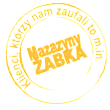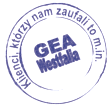Forklift trucks - get your operator's licence!

Working in a warehouse, hall or shop with a large area very often requires an employee to have completed a forklift operator course and, consequently, to have the necessary professional qualifications.
Course offer
Our course enables you to prepare for the state examination at the highest level. The training is divided into two parts - a theoretical part and a practical part. Practical classes are held on an individual basis. This means that the trainee makes an appointment with the instructor at a convenient time to learn how to use the equipment in practice.
The theoretical part consists of a number of issues, the most important of which include:
- types of forklift trucks,
- LPG cylinder replacement,
- loads and their types,
- technical supervision,
- construction and operation of trolleys,
- operator responsibilities,
- health and safety rules.
Who is the forklift course designed for?
The forklift operator course is a great alternative not only for young people looking for employment, but also for older people who already have experience, showing a desire for a change of career. The course gives you the opportunity to acquire both practical and theoretical knowledge and, through practical exercises, you can work out your speed and improve your skills. The ability to operate a forklift is an integral part of many job vacancies and is required especially for working abroad. The course is aimed at anyone with a future in warehouses, halls, ports or manufacturing plants throughout the world, as our qualifications are recognised in EU countries.
Requirements for candidates
The basic condition that a candidate applying for a forklift operator licence must meet is his or her age - the candidate must be at least 18 years old. In addition to this, education is also a prerequisite - the candidate must have a minimum of primary education. If you meet the above requirements, you will have the opportunity to take a course preparing you to become a specialised forklift operator.

Types of certification that can be obtained after the course
Completion of the course entails passing a state examination held before an appointed board of the Office of Technical Inspection. After passing the exam, the UDT issues a qualification certificate.
The Office of Technical Inspection distinguishes between two types of authorisation for lift trucks, namely:
- Powered stacker trucks with boom and powered stacker trucks with operator and lifter with load. The qualification obtained in this category also allows the operation of all other lift trucks with mechanical lifting drive.
- Powered stacker trucks excluding reach trucks and straddle carriers with the operator lifting the load.
What is the forklift exam like?
The UDT exam is divided into two parts - a theoretical part and a practical part. The theoretical part is conducted in the form of a written exam consisting of several questions. The practical part takes place on the manoeuvring area under the supervision of the UDT board. The practical test consists of verifying the ability to manoeuvre a forklift truck while observing health and safety rules.

Period of validity of forklift licences
Depending on the type of equipment, the validity of the licence ranges from 5 to 10 years. The 5-year period applies to operators of specialised lift trucks, while the 10-year period applies to operators of lift trucks excluding specialised ones, as well as guided and remote-controlled lift trucks.
The date of the training can be set individually by e-mail or telephone. Training is conducted throughout Poland. We have training centres in the larger cities and also offer travel to the client.
Forklift truck applications
The main function of a forklift truck is to move pallets, heavy loads and crates, which means that the person operating it should have the necessary skills to handle the load in the first place. There are different types of forklift trucks, which should be selected according to the job specification and also the type of load being transported. It is therefore necessary to have a specialised qualification, which can be obtained by means of a forklift operator course that ends with a state examination.
Types of forklift trucks
Based on function and purpose, forklifts are divided into:
- Front forklift trucks - in this case, the weight of the goods is balanced against the weight of the forklift. The goods are lifted by means of an attachment. As far as this particular category is concerned, it is worth distinguishing off-road forklifts, which are ideally suited to all conditions;
- Lateral forklifts - have a function that allows lateral loading and are therefore most often used for transporting and lifting goods with unusual dimensions. Most often, loads with unusual dimensions should be identified with long, elongated pieces. Characteristics of side-loading forklifts include, above all, manoeuvrability and high upward reach...;
- Lift trucks - due to their high reach, these trucks are also known as telescopic forklifts. They are characterised by a high upward reach as well as an impressive lateral reach and also a very high load capacity;
- system forklifts - these are fairly new and modern machines, with the right parameters for universal use and an overhang of several metres;
- reach trucks - have a number of unique features, including manoeuvrability, a retractable mast and a compact form;
- torsion forklifts - characterised by a high degree of manoeuvrability in operation, they are therefore desirable for warehouse work and production halls. Multi-directional forklifts are also ideal for such conditions;
- Suspended forklift trucks - these are usually transported by another vehicle. The forklift truck is attached to the back of a car or transport truck so that the driver can take care of unloading the goods himself;
- Platform forklift trucks - their primary use is to transport loads. The lifting of loads is made possible by using platform trucks with an internal mast;
- specialised forklift trucks - are used not only to lift a load, but also to lift the operator with the goods. Specialised forklifts are ideally suited to all kinds of high-bay warehouses and other places where a high degree of precision and control is required.
Please do not hesitate to contact us if you have any questions!































